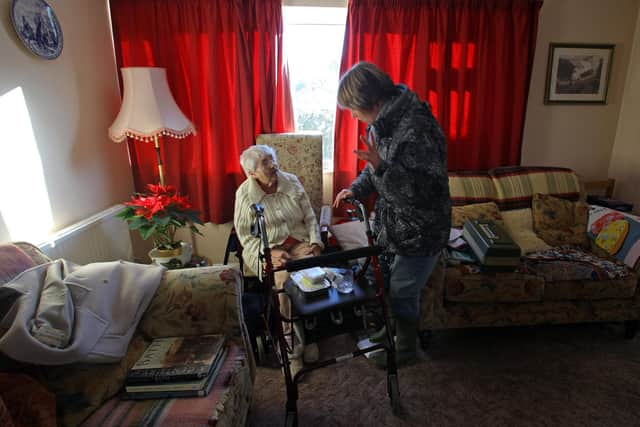12,000 become unpaid carers everyday in the UK, Sheffield University research finds
and live on Freeview channel 276
The University revealed unpaid carers looking after family members or friends due to long-term illness, disability or older age, often do not regard themselves as in an “unpaid carer role”, instead considering themselves to just be doing what anyone would do for their loved ones.
Advertisement
Hide AdAdvertisement
Hide AdLiz Naylor, aged 70, from Sheffield is a full-time carer for her daughters, who has Down’s Syndrome, a heart defect and epilepsy, said: “When my daughter was born and probably until she was in her late teens, I saw myself as her mum with additional responsibilities. From adulthood I realised that caring was a lifelong responsibility as we had to do a lot more planning, thinking, organising and looking after than one would normally undertake for adult children.


"The rewards are numerous - my daughter is a happy individual who enjoys her life and it brings us satisfaction to feel that we are helping her to achieve her best life; but the challenges are also numerous.”
The research found 2.3 million women take on unpaid carer roles each year, with the rest being men, and 1.9 million start the transition to the role whilst balancing paid employment. People are also frequently transitioning in and out of carer roles, with around 4 million people stopping their unpaid care roles every year.
Liz added: “Carers do not receive anywhere near the understanding or financial support they should receive, nor the recognition for the service they provide to the people they care for. If carers didn't do the job, it would cost the authorities many thousands of pounds per year per individual.
Advertisement
Hide AdAdvertisement
Hide Ad“There should be more overt recognition from Government and Local Authority agencies alongside the financial and external respite support necessary to keep this vital role afloat and cherished.”
The Chief Executive of Carers UK, Helen Walker, said: “Most carers would call themselves a loving partner, parent or child, and do not immediately identify their caring role - meaning many miss out on practical support as a result.”
Helen said people in unpaid carer roles are more likely to experience poorer health and weaker finances, amplified by the current crisis.
